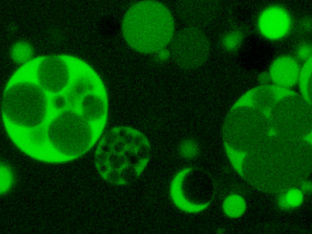Frost & Sullivan: India and China Key Manufacturing Hubs for Generic Drugs
What does this Mean to the $700 million High-purity Water Treatment Equipment Market?
North America and Europe have traditionally been the major pharmaceutical producers. However, in recent years, because of increased demand from local population and low production costs, new markets, such as India, China, Brazil and Russia, among others, have emerged.
The growing pharmaceutical infrastructure in these emerging markets is spurring the demand for high-purity water systems, creating opportunity for water management companies. In addition, many developed and developing nations are imposing stringent effluent standards on the wastewater discharged from drug manufacturing facilities in order to prevent contamination of water streams.
New analysis from Frost & Sullivan, Global Water Market Outlook: Strategic Analysis of Water and Wastewater Management in the Pharmaceutical Industry, finds that the market for water and wastewater treatment equipment in the pharmaceutical industry earned revenues of $0.69 billion in 2010 and estimates this to reach $1.25 billion in 2017.
“The most important factor driving growth is the emergence of Asian countries such as India and China as key manufacturing hubs for generic drugs and APIs,” notes a Senior Research Analyst of Frost & Sullivan. “India has over 100 FDA approved drug manufacturing facilities - the highest for any country outside USA.”
The Asian market for water and wastewater treatment equipment in the pharmaceutical industry is expected to grow at a compound annual growth rate of 16.5 per cent from 2010 to 2017. Pharmaceutical companies in North America and Europe are outsourcing certain portions of the drug production process to Asian countries and are keen to focus more on research and drug development. This move could reduce the number of pharmaceutical production facilities in these regions in the future.
“In North America and Europe, the replacement and refurbishment segment are anticipated to offer more potential,” remarks the Senior Research Analyst. “With many countries in these regions outsourcing their operations to Asian countries the water and wastewater treatment equipment market in these regions is expected to grow at the rate of around 5-6% annually.”
In North America and Europe, effluent discharge standards for pharmaceutical production facilities are set to become more stringent in the future.
“Strict effluent discharge standards will force pharmaceutical production facilities to adopt advanced treatment technologies and also focus on sustainable technologies that would facilitate the generation of energy from their wastewater,” concludes the Frost & Sullivan analyst. “This would enable them to reduce the operational costs associated with wastewater treatment plants.”
Organizations
Other news from the department business & finance

Get the life science industry in your inbox
By submitting this form you agree that LUMITOS AG will send you the newsletter(s) selected above by email. Your data will not be passed on to third parties. Your data will be stored and processed in accordance with our data protection regulations. LUMITOS may contact you by email for the purpose of advertising or market and opinion surveys. You can revoke your consent at any time without giving reasons to LUMITOS AG, Ernst-Augustin-Str. 2, 12489 Berlin, Germany or by e-mail at revoke@lumitos.com with effect for the future. In addition, each email contains a link to unsubscribe from the corresponding newsletter.
More news from our other portals
Last viewed contents
Ionix and Tripos collaborate on discovery of novel analgesics

Miraculous proliferation
Genomatix Expands Operations in North America - New Subsidiary and Training Academy in Ann Arbor, MI
Photocure announces plans to de-merge PCI Biotech
Bitop AG Reports That Ectoin Reduces Symptoms of Acute Allergic Rhinitis
























































